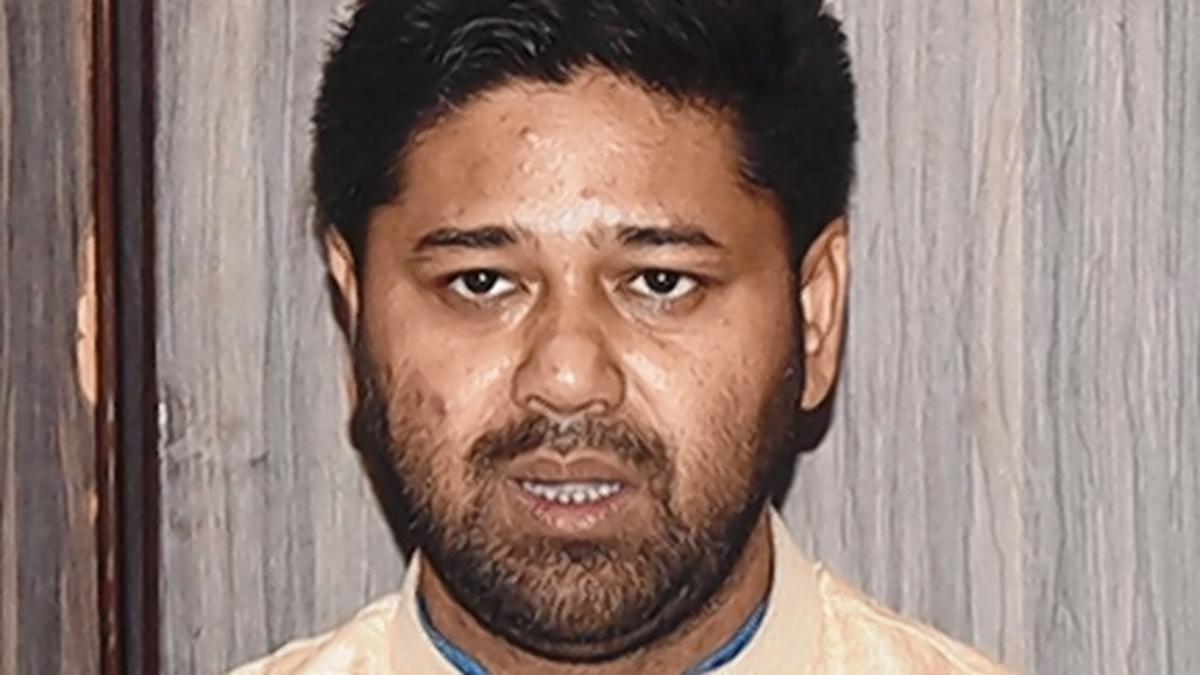
Take decisive action against illegal coal mining: Assam regional party to PM
The Hindu
Assam Jatiya Parishad urges PM Modi to take action against illegal rat-hole mining, highlighting government officials' negligence.
GUWAHATI
A regional political party in Assam has urged Prime Minister Narendra Modi to take decisive action against political leaders and government officials responsible for illegal rat-hole mining, resulting in the loss of lives and environmental degradation in blatant violation of repeated directions by the Supreme Court.
In a letter to the Prime Minister, the Assam Jatiya Parishad (AJP) also underlined the futility of forming an inquiry commission to probe the January 6 rat-hole mining disaster in Dima Hasao district’s Umrangso, while ignoring previous findings. This was with reference to Chief Minister Himanta Biswa Sarma’s decision to constitute a panel headed by retired judge Anima Hazarika to investigate the illegal coal mining operations in the district.
Nine miners were trapped in a flooded rat-hole mine in the Kalamati area of Dima Hasao on January 6. Rescue workers from multiple agencies, including the Indian Navy and Army, have retrieved the bodies of four miners so far.
The Chief Minister said draining the ill-fated mine and other interconnected abandoned mines would take 25-60 days.
“This [Dima Hasao] incident is not an isolated occurrence but part of a larger systemic issue of illegal coal mining facilitated by the Assam government,” AJP president Lurinjyoti Gogoi and general secretary Jagadish Bhuyan wrote, referring to the Chief Minister’s “contradictory statements” relating to the mining mishap.
They said the Chief Minister acknowledged the presence of 220 illegal rat-hole mines around the incident site after claiming they were abandoned by the Assam Mineral Development Corporation (AMDC) and inactive for over 12 years.

“He travels fastest who travels alone”. M.V. Murthy has substantiated that thought from Rudyard Kipling. In 12 years, he has set 8,125 saplings in soil and seen them through to maturity. He has gone it alone — at multiple levels. No volunteers to work shoulder to shoulder with. No fundraising to support the purchase of native-tree saplings and tree guards. The only “volunteer” who tags along with Murthy on every tree-planting spree is his steadfastly loyal Honda Activa. The only source of funding is his wallet. At 5.30 a.m., when people are snoozing alarms, Pasumai Murthy (as he is popularly known) ranges around some Chennai neighbourhood, a plastic pot filled with water lodged in the wide floorboard of his step-through scooter After serving the saplings their “breakfast”, he gets his own, and around 9 a.m., the Activa is headed to his workplace, which lacks a fixed address. An assistant manager with Ramaniyam Builders, he is not desk-bound, his brief requiring him to visit construction sites. While strapping on the ratchet-type safety helmet, he puts on an invisible green cap. During the visits to those work sites, his mind maps spots where the Chennai sun stings the hardest, shadows being scarce. These are stark landscapes devoid of trees to offer respite from a glaring sun. In May 2013, at Vannanthurai junction, not far from his diggings in Vannanthurai in Adyar, the absence of something familiar made him acutely aware of it. A stand of trees had been removed on account of road expansion. A couple of children ran barefoot on baking tar. Elders leaned helplessly against sun-scorched compound walls. “That moment hit me,” he says. “If we can cut down trees in a day, why not grow them with equal urgency?” On August 15 that year, at Adyar Junction, he hoisted the national flag, distributed sweets, and planted 15 saplings. He was not doing anything radical, only following a rule that seldom budges from the paper it is printed on. For every tree that is felled on account of development, ten others need to be planted. People could process tree-planting exercises by groups, but not by a lone wolf. Sneers came his way; he smiled them off. He recalls being ridiculed by visitors to a Corporation gym while planting saplings at Besant Nagar beach. Now, he counts those same faces among his host of supporters, his consistent efforts to plant saplings and water them earning him their admiration. The admiration derives in part from the fact that he digs into his own pocket to keep this service going — well, growing. At a time, he buys a bundle of net-type material costing ₹1,700 out of which 25 tree guards can be made, on an average. For support to those tree guards, he buys 50 iron rods (thick and six feet long) which set him back by anywhere between ₹5000 and ₹6,000 depending on their weight. And he buys saplings from a nursery in Akkarai where he is assured of a discount by virtue of being a long-time buyer. Obviously, given the financial sacrifice all of this entails, he has got buy-in from his family to do this service. Being reasonable in the allocation of time has helped him win them over: the first half of every Sunday he reserves for tree-planting and the course of the second half is scripted by his wife Maria Priya and his daughter Meha M. He has received a doctorate degree from the The Academy of Universal Global Peace for this work.





















 Run 3 Space | Play Space Running Game
Run 3 Space | Play Space Running Game Traffic Jam 3D | Online Racing Game
Traffic Jam 3D | Online Racing Game Duck Hunt | Play Old Classic Game
Duck Hunt | Play Old Classic Game










